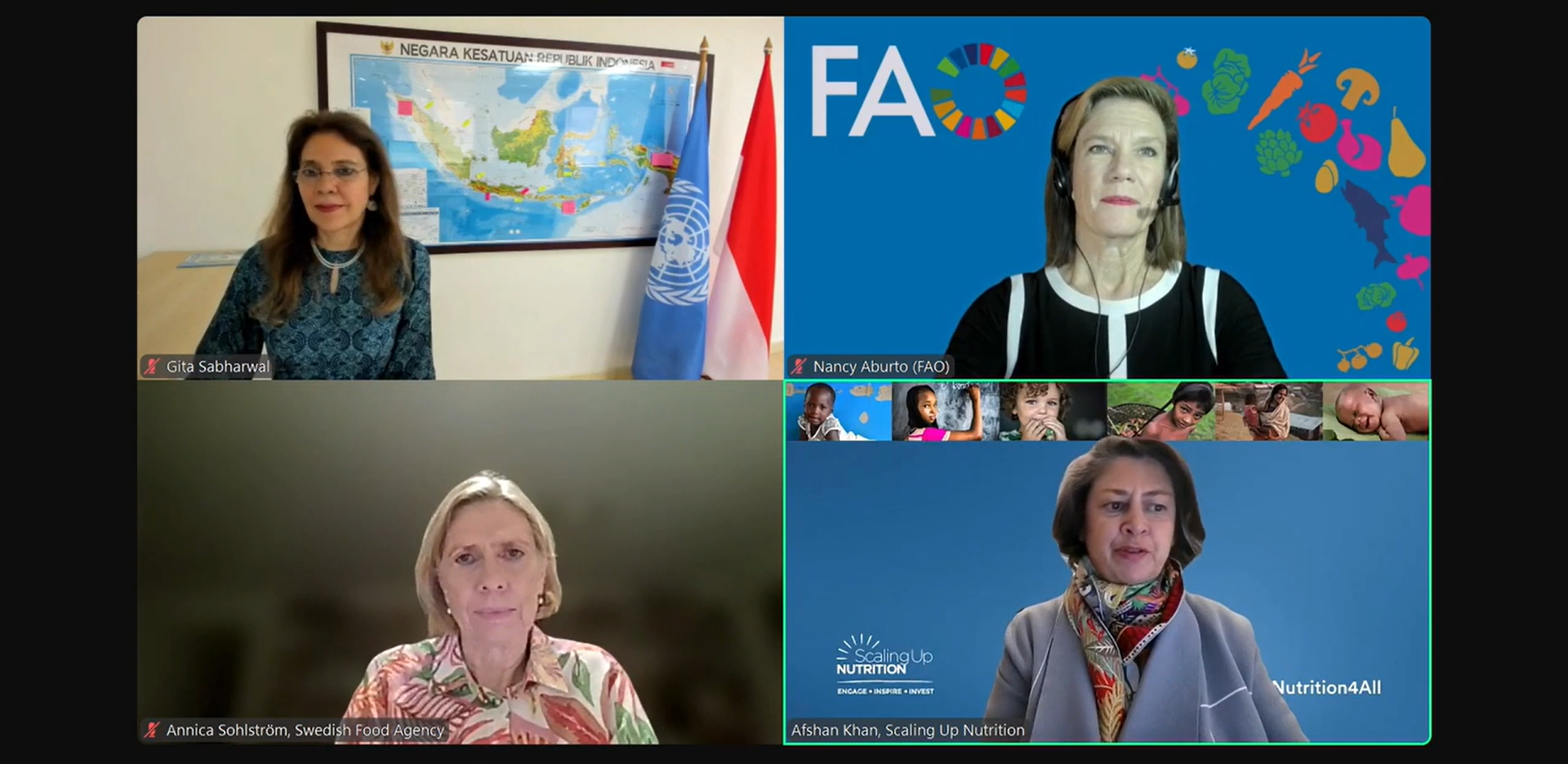COP29: Bridging food systems, nutrition, and climate action

On November 14, the WHO Health Pavilion at COP29 hosted a side event on “Aligning Food Systems, Nutrition, and Climate Action,” co-organized by the Nordic Council of Ministers, the UN Food Systems Coordination Hub, the Scaling Up Nutrition (SUN) Movement, WHO and the Coalition of Action on Healthy Diets from Sustainable Food Systems for Children and All (HDSFS).
The event brought together leaders and experts from governments, civil society, and the private sector to exchange insights and solutions for integrating food systems, health, and climate goals. Discussions highlighted the scale of the challenges ahead and celebrated innovative efforts underway around the world.
The dual challenge of food systems
The session spotlighted a stark reality: food systems are responsible for a third of global greenhouse gas emissions, yet they leave over 700 million people hungry and 3.1 billion unable to access healthy diets. The hidden costs of these systems surpass $12 trillion annually, largely due to the consequences of unhealthy diets. As Afshan Khan, Assistant Secretary-General and Coordinator of the SUN Movement, explained, “We cannot achieve nutrition targets without considering climate, and we cannot meet climate goals without transforming food systems for healthier diets.”
Francesco Branca, Director of the Department of Nutrition and Food Safety at WHO, reinforced the urgency of addressing this gap. He noted that “nutrition remains underrepresented in climate policies, with only 2% of Nationally Determined Contributions (NDCs) and 16% of climate adaptation plans addressing nutrition explicitly.”
Global partnerships
Key global initiatives such as the HDSFS Coalition and the Initiative on Climate Action and Nutrition (I-CAN) are working to bridge the gap between nutrition and climate action. These platforms aim to offer scalable, evidence-based solutions, address policy gaps, and inspire integrated approaches. “We no longer have the luxury of thinking in silos,” stressed Nancy Aburto, Deputy Director of the Food and Nutrition Division at FAO, emphasizing that the challenges we face require holistic solutions.
Najat Mokhtar, IAEA Deputy Director General and UN-Nutrition Chair, stressed in her video message the need to integrate nutrition into comprehensive food systems and climate policies. She highlighted that "nutrition-environment win-wins arise" when these elements are aligned and emphasized the UN’s unified approach in reinforcing the connection between human and planetary health, noting that “the health of our people and the health of our planet are inseparable.”
Success stories from the local level
The session also showcased national-level innovations, demonstrating how global frameworks are being adapted to address local needs. Khaled Eltaweel, Senior Program Coordinator, UN Food Systems Coordination Hub, emphasized the importance of alignment across levels of action: “It is critical to align what the UN system is doing with what is happening at the national level, bringing together government, civil society, and the private sector to drive meaningful change.”
In the Nordic countries, the Nordic Nutrition Recommendations (NNR) have integrated environmental and climate considerations into dietary guidelines for the first time, informing public meal programs and school initiatives. Annica Sohlström from the Swedish Food Agency described this as “a significant step forward,” adding that “integrating health and environmental considerations into dietary guidelines shows that aligning nutrition with sustainability is not just possible but essential for achieving both healthier populations and a healthier planet.” These open-access recommendations are inspiring international collaboration and country-to-country learning.
Meanwhile, Indonesia has tailored its strategies to align food systems with climate resilience and emissions reduction goals, addressing regional diversity. Initiatives like blue food systems in Sulawesi and organic farming in Sumatra exemplify the adaptability required for systemic transformation. Programs such as the Nutritious Meals Initiative address malnutrition while promoting biodiversity through the diversification of traditional crops. Meanwhile, innovative financing mechanisms and the inclusion of youth in smart agriculture practices are fostering long-term sustainability. Gita Sabharwal, UN Resident Coordinator in Indonesia, highlighted these efforts, stating, “Indonesia’s tailored strategies for climate-resilient food systems highlight the importance of diversity in solutions. By addressing regional needs and empowering communities, we are transforming food systems into drivers of sustainable development and climate action.”
Upcoming milestones
The discussions underscored the urgency of aligning food systems with health and climate objectives. As milestones like COP30, the Nutrition for Growth Summit (N4G), and the UNFSS+4 Stocktaking Moment approach, the call for systemic change grows louder.
- For more insights and resources, explore FAO’s report on Climate Action and Nutrition – Pathways to Impact.
- Find the recording of the side event here (Day 2 - Aligning Food Systems, Nutrition and Climate Action).
- Read the side event concept note.
